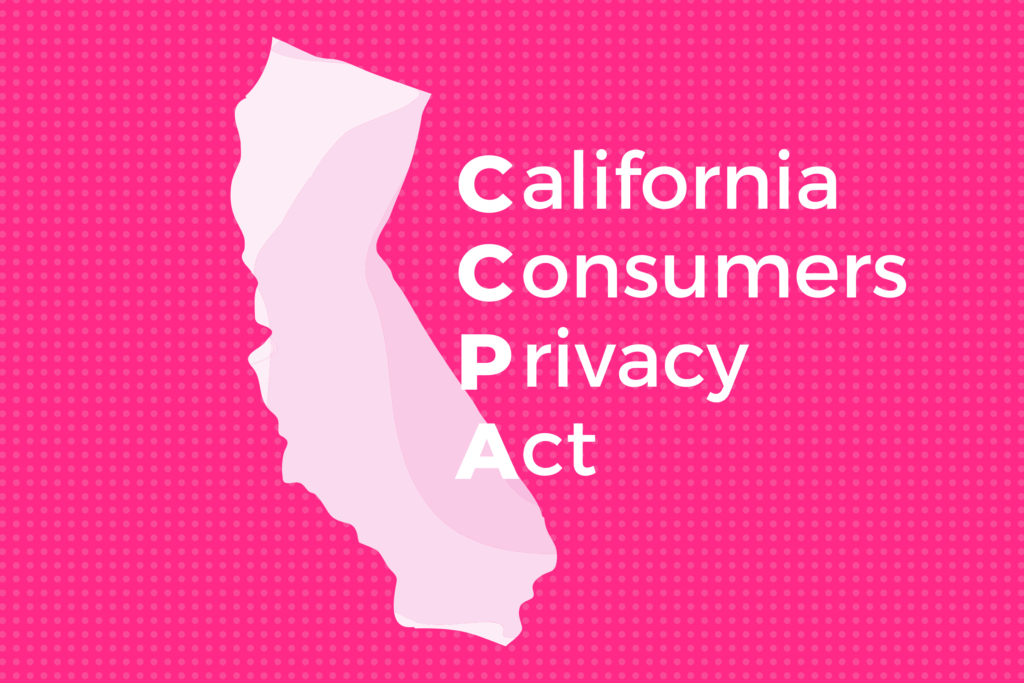Can you believe it’s January of 2020?
It’s a fresh, new decade full of new goals, resolutions — and now, even a new law that will now impact many businesses.
What this new law we speak of?
It’s called the California Consumer Privacy Act or CCPA for short and it’s been in effect since January 1, 2020.
Let’s talk about it a bit, shall we?
Note: This is a very simple way to describe the California Consumers Privacy Act (CCPA) and it should not be taken as legal advice in any form.
As the name of the law suggests, CCPA gives California consumers more control over how their personal and private data is used, shared, and sold.
The marketing world that has long gone unregulated in the area of consumer data.
But as technology has taken leaps and bounds in how we can gather, track and use personal, behavioral, or even genetic data for marketing purposes, people are recognizing the need to be more in control of data that rightly belongs to them.
Therefore, the law was established to help give Californian’s back more privacy over their personal information. This law now gives CA-based consumers a few new, enforceable rights:
- What information is being collected about them
- Whether or not their information is sold or disclosed
- Who that information is sold or disclosed to
- The right to opt-out of their personal data being sold
- Be able to access any/all of their personal info that a company or business has stored
- The ability to delete personal data
Sound a bit familiar?
If you’re having GDPR flashbacks, you’re not alone. The reason for this law and level of control over personal data are very similar between GDPR and CCPA. Though, there are some marked differences, which I don’t need to get into at the moment.
It does seem, though, that CCPA is narrower in who this law applies to. According to the CCPA Fact Sheet from the California Attorney General’s office, CCPA applies to you if you one or more of these marks:
- Your business has gross annual revenues in excess of $25 million;
- Your business buys, receives, or sells the personal information of 50,000 or more (Californian) consumers, households, or devices;
- Your business derives 50 percent or more of annual revenues from selling consumers’ personal information.
With this in mind, it appears as though CCPA looks to target larger organizations rather than small businesses.
However, if your business is in California and you hit the mark on any of these, the law most definitely applies now. And yes, collecting someone’s name and email address for email marketing applies too.
If you hit these marks the law will impose new business obligations, which you can read more about here.
The only businesses who could possibly be in the clear are non-profits and universities, but that’s largely based on interpretation and it’s yet to be clarified.
Failure to comply with the law when it applies to you can equal $7,500 per violation that hasn’t been handled within 30 days.
Unfortunately, the answer to that question is unclear.
While it is a California law, the way the law is written seems to allow California to hold businesses outside the state accountable to the rules and fines outlined in CCPA.
Even if it doesn’t, there are other states that are starting to join the charge in creating new laws. As the fifth largest economy in the world, California stamped their mark in a new area, and it’s getting attention meaning laws like these will likely eventually affect the majority of most businesses.
CCPA is setting a precedent, and even if it doesn’t apply to you, taking steps to give consumers a clearer understanding of the data you’ve collected and the right to opt-out of selling that information or to be able to delete it could still be of major importance as we move through a new technological age with new laws coming into effect.
This is a new law with a lot of nuances that many are getting used to. However, for marketers and email marketing as a whole, it’s not the end of the world.
In fact, you can use this as an opportunity to build trust with your audience as you can offer more transparency and honesty.
With that as a vantage point, it’s easy to find a silver lining.
Collecting data and using it for marketing are still going to be around. Only now, Californians have a right to access and say how it’s used, if they decide to.
So, no, it’s not all doom and gloom.
Giving people more control over their personal data is likely to become the new norm. Until then, it’s business as usual, with a few new things some will need to comply with.
